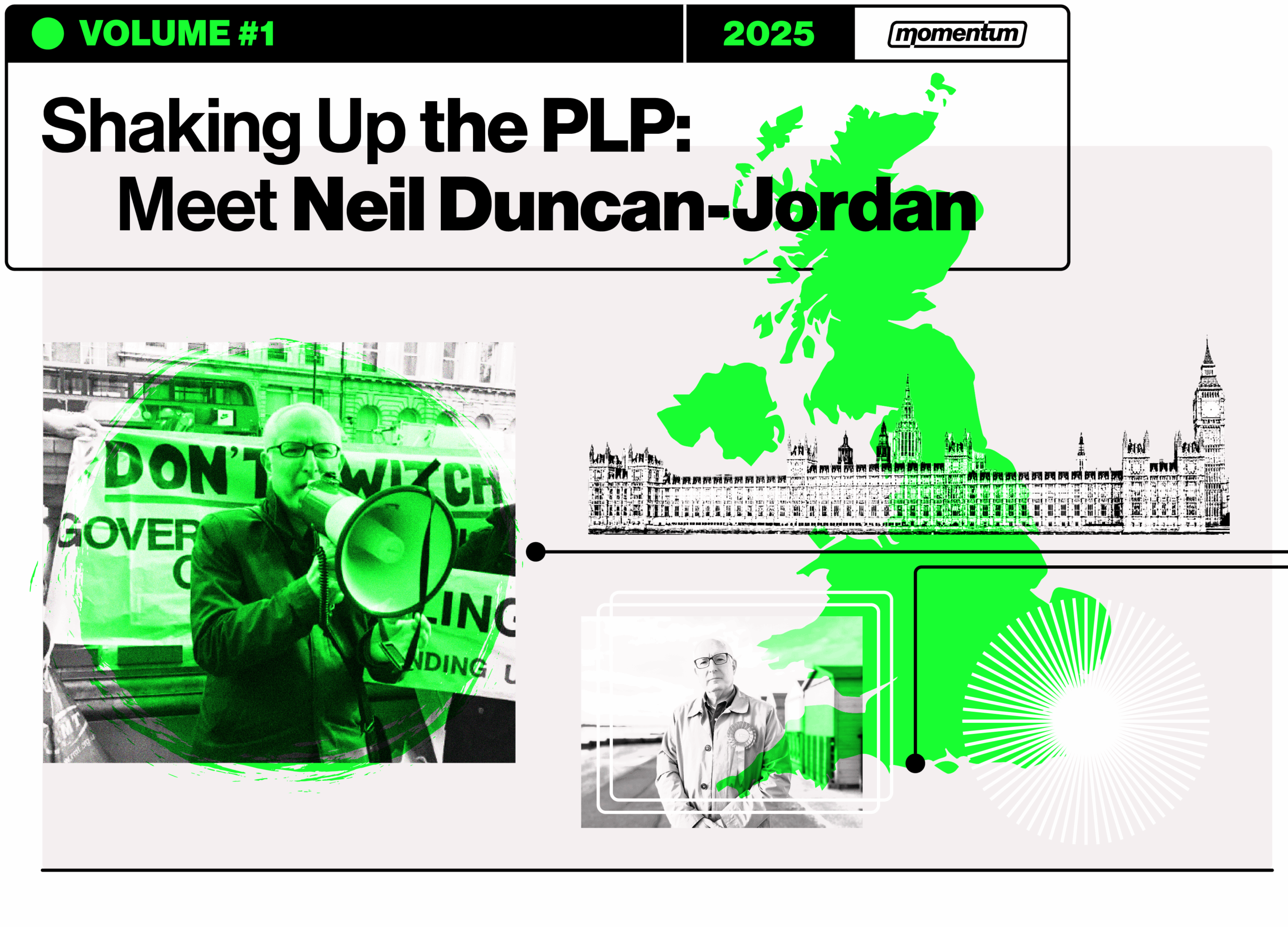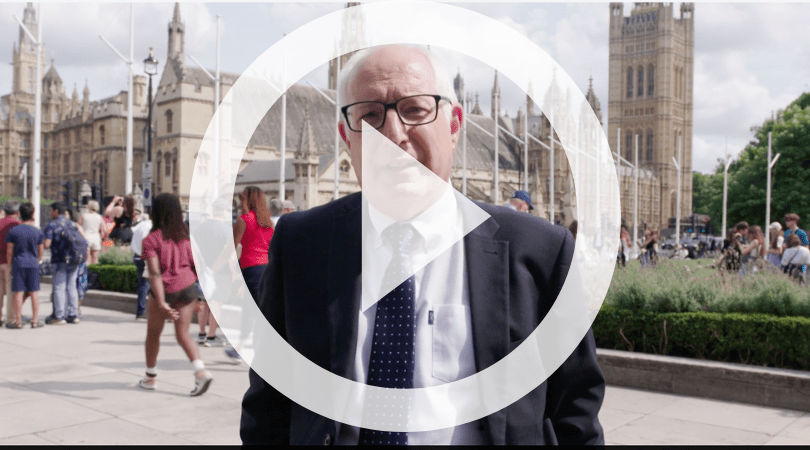

Neil Duncan-Jordan was one of 243 Labour MPs elected for the first time last year. Winning with a mere 18 votes, he is the first Labour MP to ever represent the constituency of Poole in Dorset since the seat’s creation in 1950.
Neil was one of 58 MPs, including 20 from the 2024 intake, who voted against the welfare bill at either first or second reading. He has been an outspoken and principled opponent of some of Starmer’s most disastrous mistakes, such as the controversy around Winter Fuel Payments.
Last week, Neil was suspended from the Parliamentary Labour Party alongside Rachael Maskell, Brian Leishman and Chris Hinchliff for rebelling against the Government’s increasingly unpopular agenda. So we joined organisations Compass and Open Labour in launching a petition demanding the whip is restored to the four MPs immediately.
Sign the petition here.
Prior to his unjust suspension, we sat down with Neil to discuss his early years in politics and what the Labour Government must do to fend off a surging far right at the ballot box. You can find out more about him by watching our video below.
⬤ First I’d like to say a huge congratulations your election last year. It’s great to see more socialist and progressive Labour MPs such as yourseld enter Westminster to fight for real Labour values. How would you summarise your experience of being an MP so far?
It’s fair to say it’s been a rollercoaster of a year – and like all jobs, you have good days and bad days. Just weeks into being elected, the Government announced its decision to means test the Winter Fuel Allowance. I couldn’t believe that I would fall out with the Government so quickly! So for the last 12 months I’ve been navigating how Westminster works, trying to make a difference where it counts and speaking up when and where I need to.
⬤ You’ve been an outspoken critic of the Government’s decision to slash payments for disabled people. What response have you got from your constituents? And what do you think the Government should be doing to protect the most vulnerable?
In a constituency like mine, Labour won last July because we were able to put together a coalition of voters from different backgrounds – who were all looking for change. It’s quite obvious that we will have a chance of winning again in this constituency if the MP is seen as independently minded – standing up for local people, rather than simply being lobby fodder. That’s why I’ve had good support from my constituency for the stance I’ve taken.
I made it clear from the beginning that I would not support the cuts to disability benefits and I have continued to campaign inside Westminster for the Government to think again. The Government needs to withdraw the Bill and start redesigning the benefits system alongside deaf and disabled people’s organisations. In addition, we also need to start investing in employment support for disabled people.
⬤ Polls show the Labour Government losing vital support and the far right looks set to benefit. With Reform UK creeping ahead, how is it best for Labour in Government to tackle the surge of the far-right?
There have been some positive, progressive policies introduced over the first year of a Labour government including those around employment rights, rent reform, fining the polluters and taking railways back into public ownership – but many of these issues have yet to come into force, and as such, people are still waiting to see the material difference between Labour and what went before. The language around immigration also needs to be sensitive so that we don’t repeat the ‘island of strangers’ style references. Defeating the right will be a combination of progressive policies, a defence of community cohesion and a pro-equality agenda.
⬤ You have given clear indications that you are on the left of the Labour Party. How can socialist and progressive MPs have an influence even though you’re in a minority in the Parliamentary Labour Party?
The recent climbdown over the cuts to welfare shows how Left MPs can be pivotal to organising around a specific issue. This means articulating a Left case in a way that can connect with those MPs that do not naturally regard themselves as being allies. I’ve also used the first year to write numerous articles and take part in various interviews that can get the message across to a wider audience – both inside and outside of Westminster.
⬤ What advice would you give to ordinary Labour Party members who are concerned about the reactionary policies of the Starmer Government? How can they use their energies effectively?
I don’t think leaving the party is the answer – even though I understand how some comrades might feel that way. In fact, leaving the party has made it difficult for Left MPs – because we face additional struggles in getting selected, keeping our seat and having the resources available to campaign effectively. Of course, our Party democracy has been hollowed out in recent years and we urgently need improvements in our democratic structures – but that only comes by being in and fighting for them.
⬤ How and when did you first get involved in politics? What motivated you?
I got involved in politics when I was 14 – joining CND, going on marches and supporting the miners’ strike. These were highly political times – even the music in the charts – like Ghost Town by The Specials, captured the mood in the country and the need to fightback. It was later that I joined the Labour Party and became a County Councillor in my early 20s and from the first day I went to work, I joined a trade union – eventually becoming a regional official. Collective action is basically in my DNA.
⬤ What does socialism mean to you?
In essence, I believe that we achieve more together through co-operating than through competition. The state’s role must be to provide the services and support that the people need, ensuring that wealth is shared and getting positive outcomes for everyone – regardless of their background. We need to get the basics right – jobs, education, housing, health and culture to demonstrate what socialist policies look like. This also has to spread into the international sphere – where we have to be advocates for peace rather than war, and co-ordinate measures to tackle the impact of climate change alongside our foreign partners.
End note:
Thanks for reading everyone – and a big thanks to Neil for contributing!
If you want to share your ideas on how to improve our political education newsletter, or any feedback you may have, please feel free to email us on [email protected]. Your feedback is greatly appreciated.
In solidarity,
Team Momentum
More from The Educator

